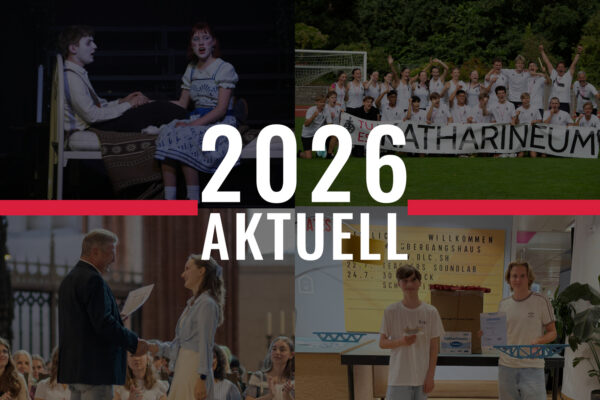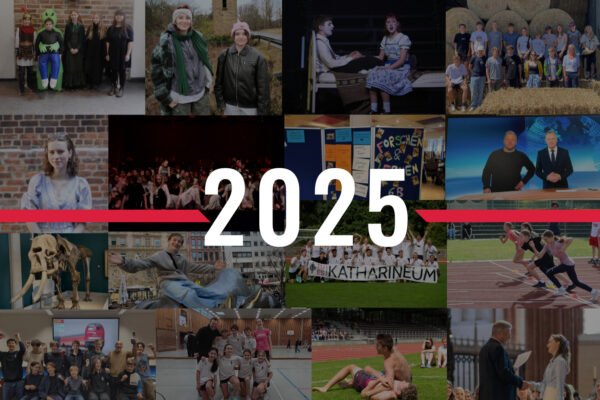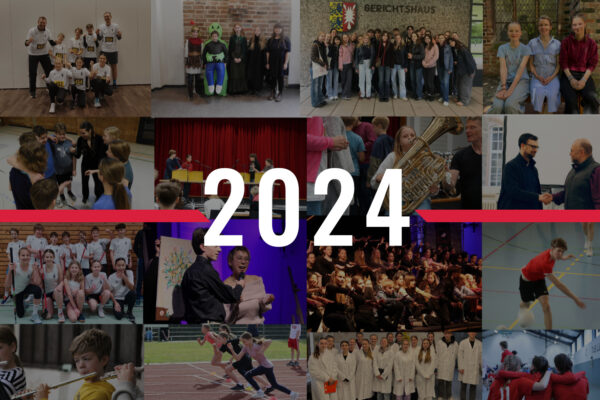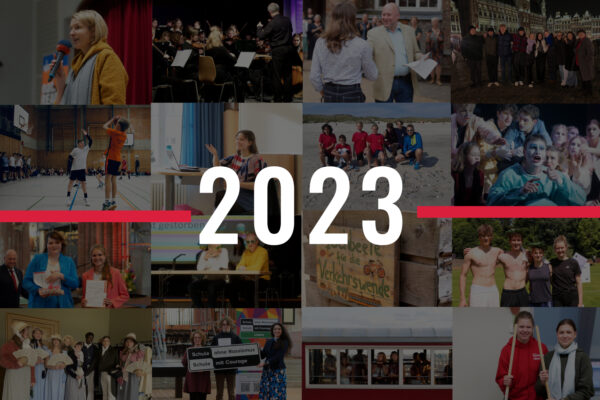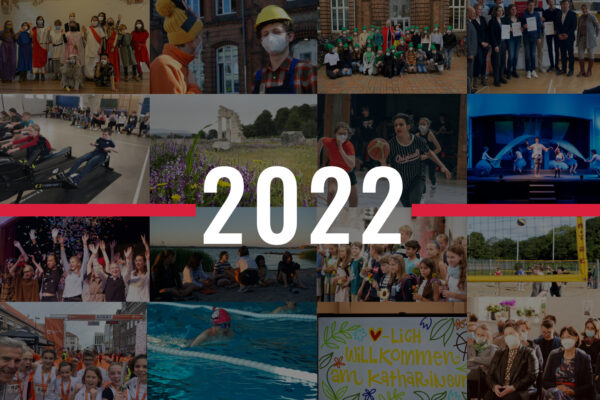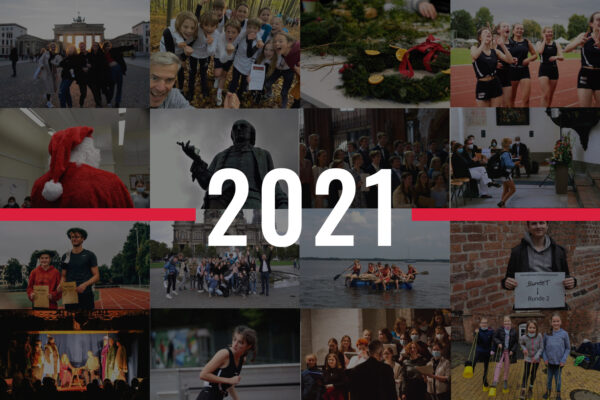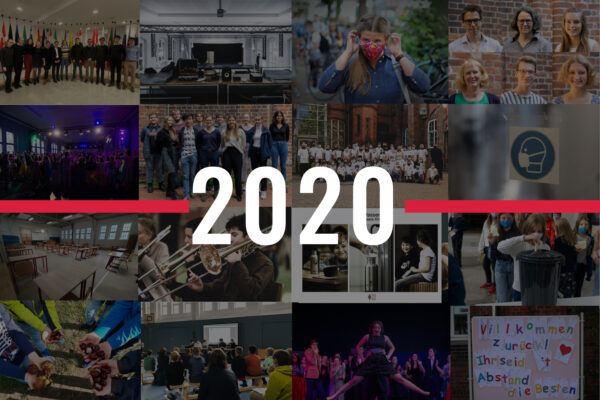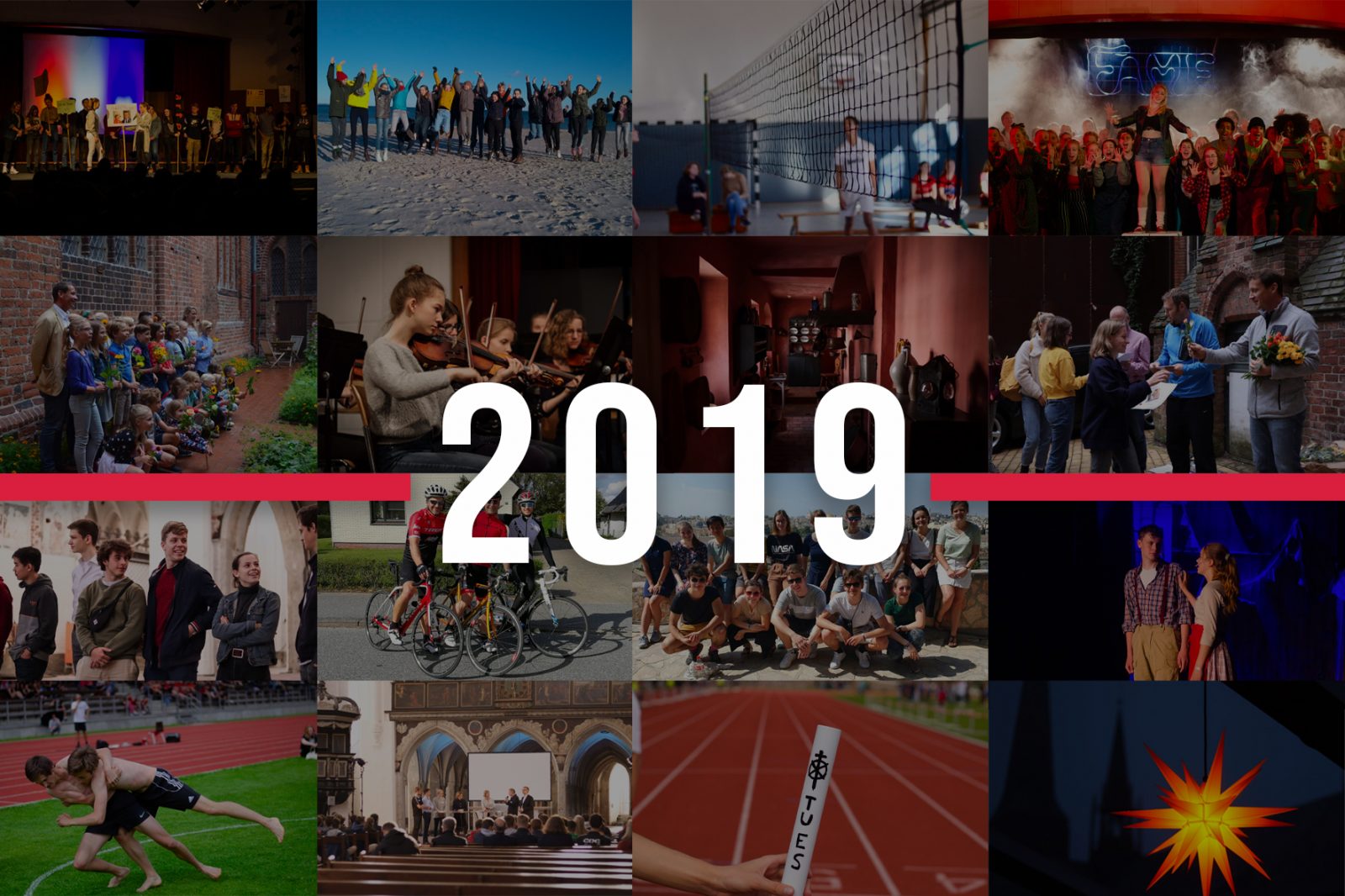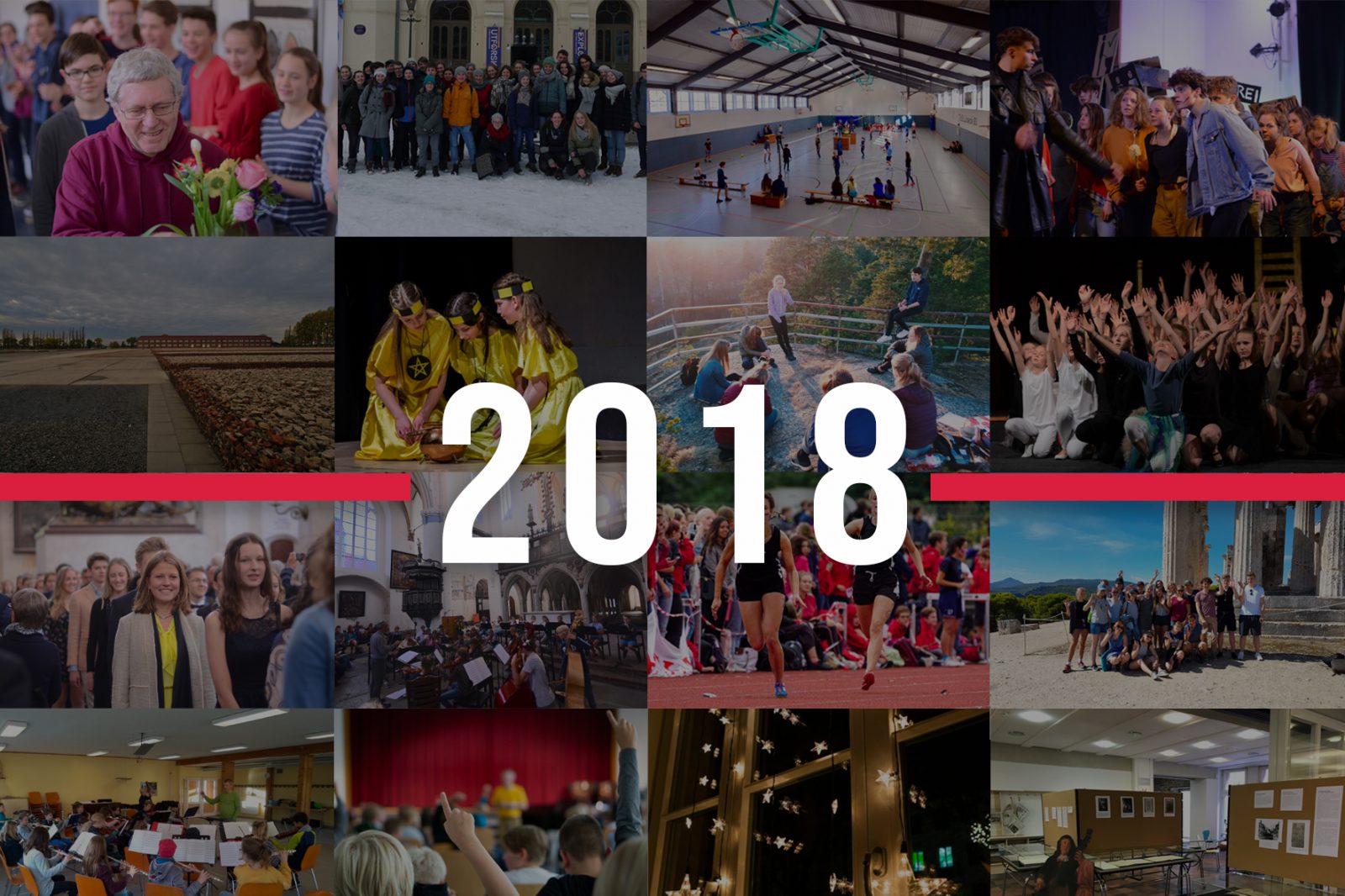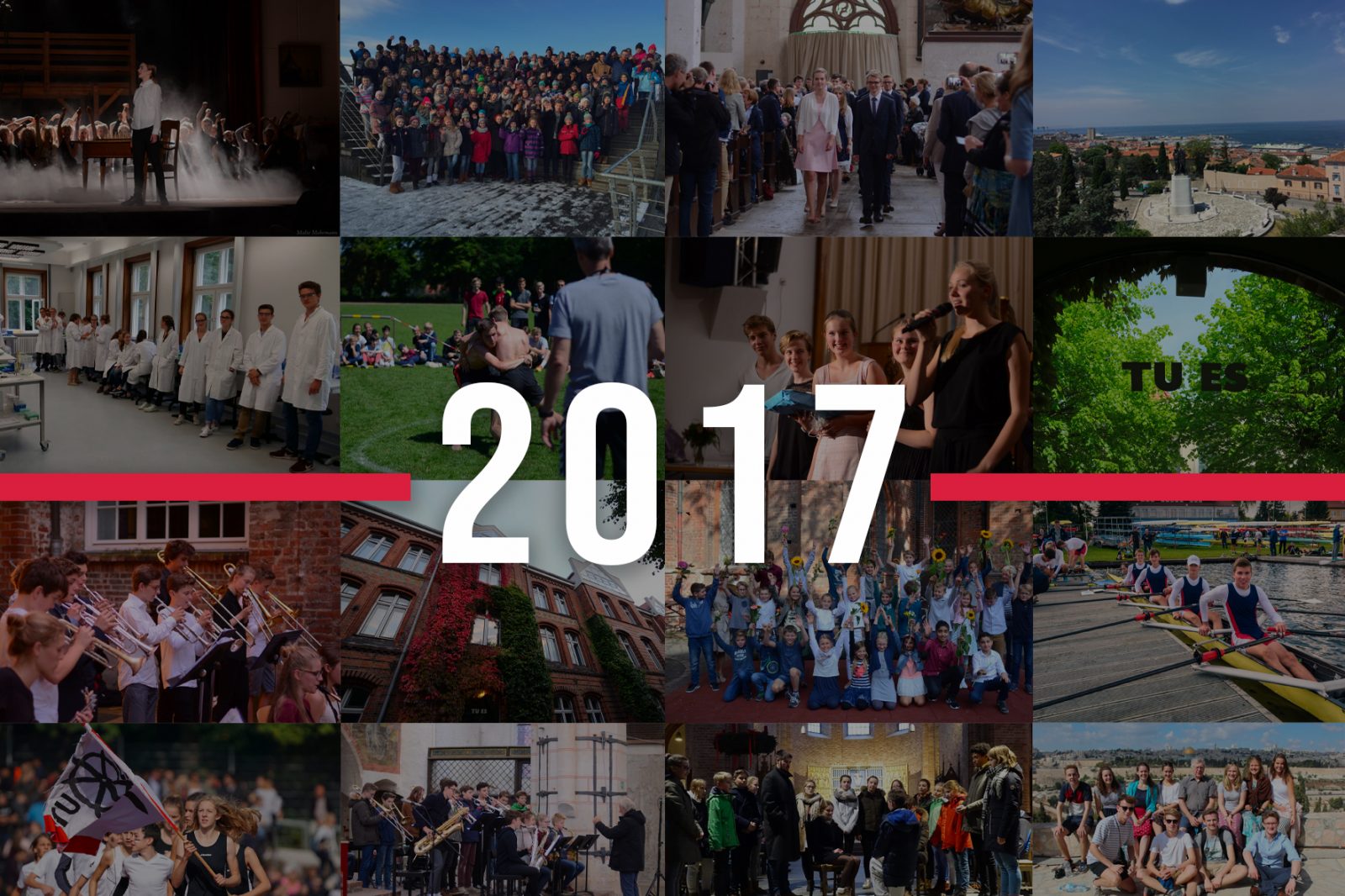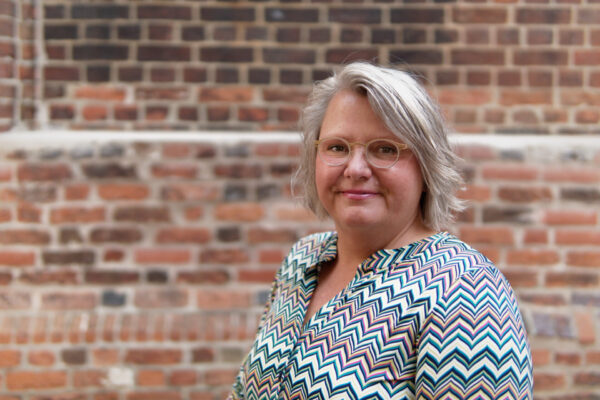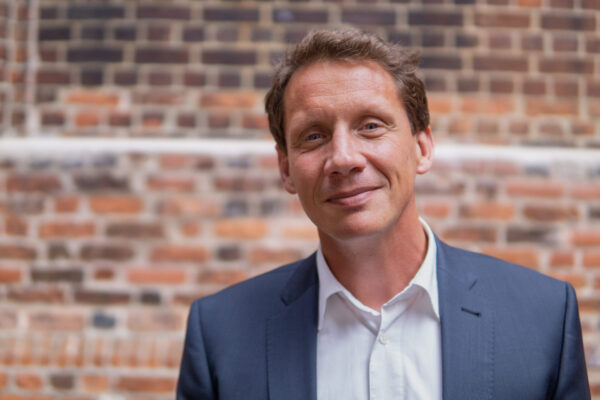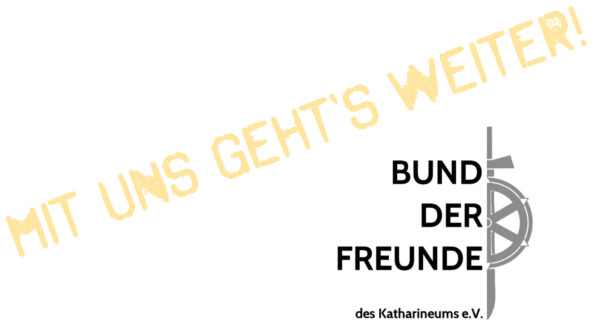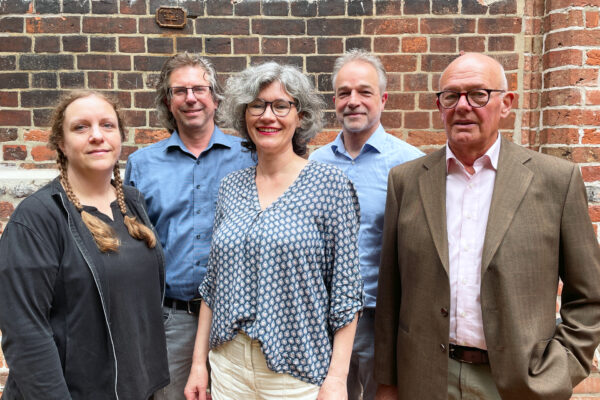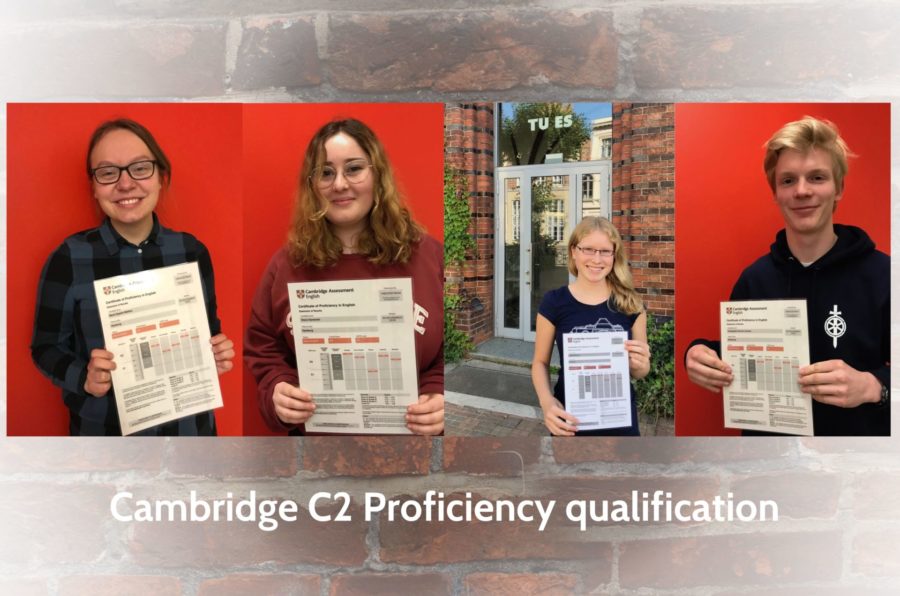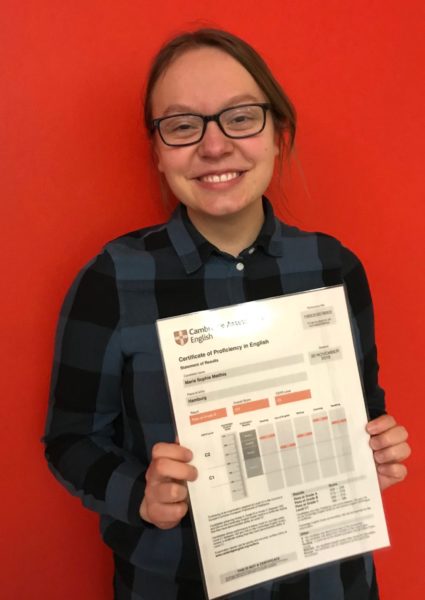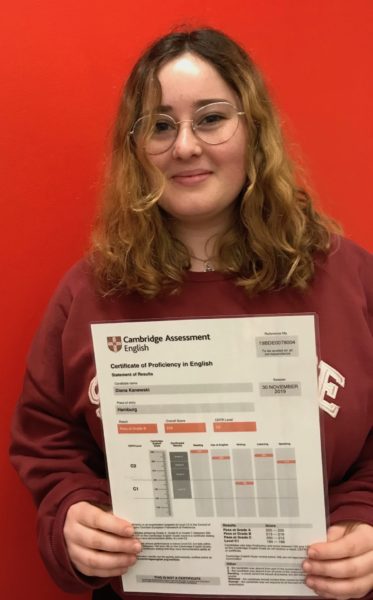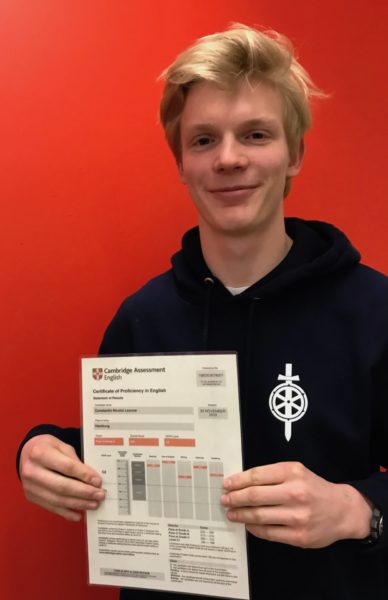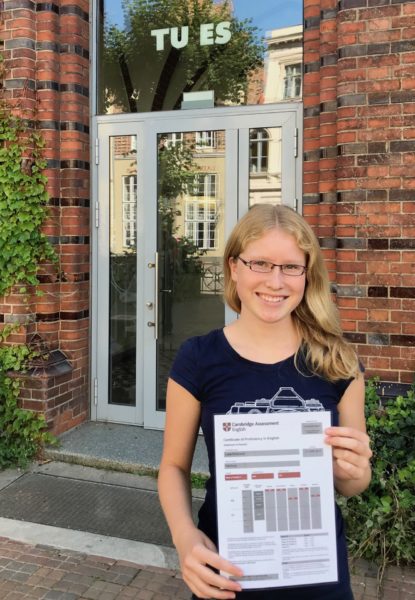This June 2020, four distinguished Katharineum students are scheduled to graduate with the highest-level qualification one can accomplish in English. All four students have successfully passed the certificate of proficiency in English, now called the C2 proficiency qualification.
A Cambridge C2 Proficiency qualification shows the world that these four students have mastered English to an exceptional level. They can communicate with the fluency and sophistication of a highly competent English speaker.
A C2 Proficiency qualification shows that people can:
- study demanding subjects at the highest level, including postgraduate and PhD programmes
- negotiate and persuade effectively at senior management level in international business settings
- understand the main ideas of complex pieces of writing
- talk about complex or sensitive issues, and deal confidently with difficult questions.
What were the reasons for taking C2 Proficiency examination?
Luise plans to apply for scholarships, and to spend a semester abroad later on. Diana will work as an activity leader for children at a summer camp in England, and plans to volunteer for a year with Red Cross in Israel afterwards. Maria has applied to and has been accepted to study mathematics and philosophy at Oxford University. Constantin has applied to universities in Edinburgh and London and has been accepted to study physics at the University of Warwick. In general, an advanced English qualification proves to universities and future employers that candidates have developed exceptional English skills, necessary to succeed in academic or professional environments.
How effective was the preparation for the C2 Proficiency examination?
All four students took the paper-based examination, but a computer-based examination also is available now. Maria said that it had been helpful to practice all four parts of the examination (reading, writing, listening, and speaking). Diana added that especially the reading training at Cambridge AG was good because that part is very different from school work, both in terms of its content and its multiple-choice question format. Constantin admitted that the preparatory course forced him to focus more on the writing part—which also is quite different from the customary written examinations at Katharineum. More information on preparing for Cambridge examinations can be found on the Cambridge English website: https://www.cambridgeenglish.org/exams-and-tests/proficiency/preparation/
Which recommendations can be passed on to future candidates?
Not surprisingly, Diana concluded that a Cambridge examination is doable. Obviously, it helps to familiarize oneself with the formalities of taking such a long, comprehensive examination, e.g., formal regulations, time management, or tips for the examination day. But it is good to remember that, at the end of the day, it is just a test. According to Constantin, one should practice what one feels least comfortable about. Another comforting detail is the fact that students cannot really fail with multiple-choice questions. Since 2015, all candidates that went through the preparatory course for Cambridge examinations at Katharineum have successfully passed their respective examinations at the level for which they registered. 😉
VOG, 26 February 2020


